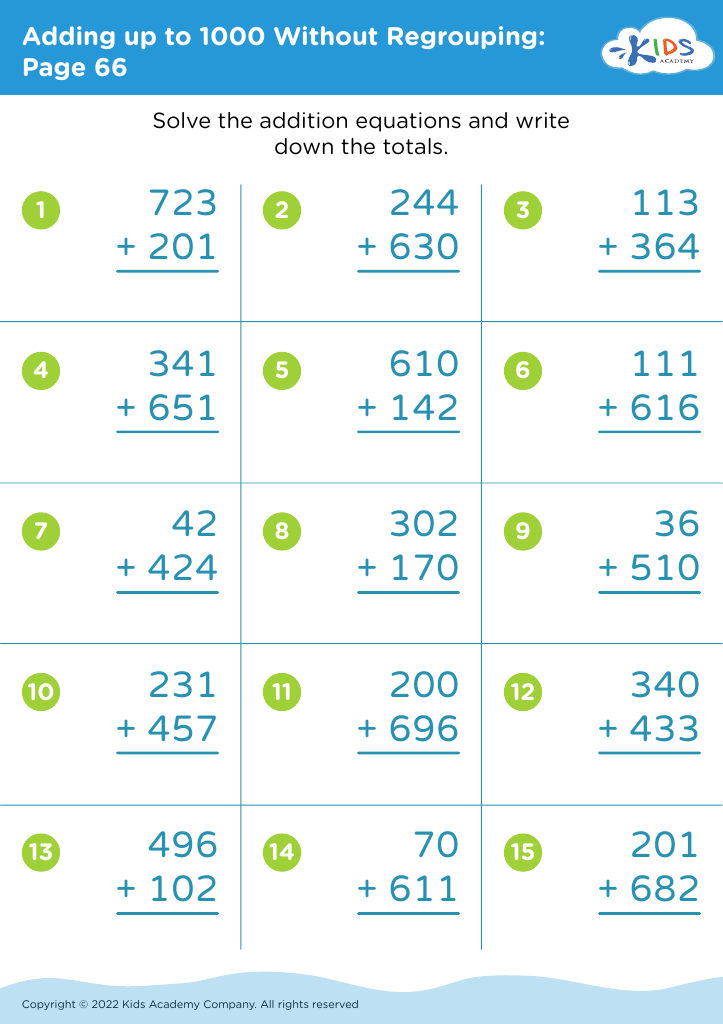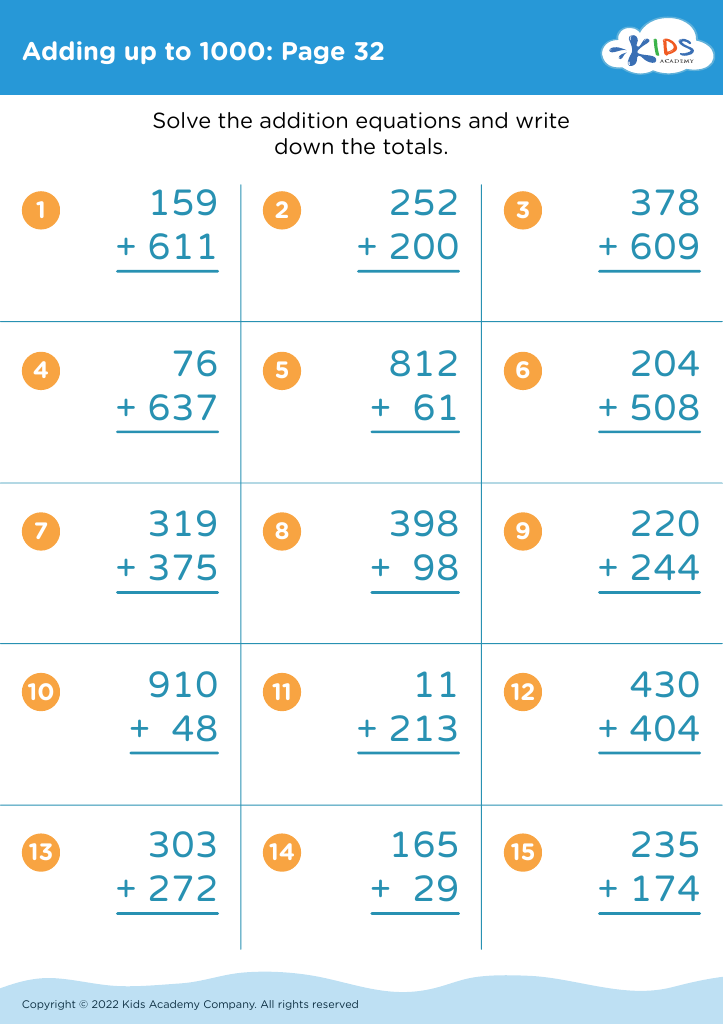Recognize shapes Adding up to 1000 Worksheets for Ages 6-9
4 filtered results
-
From - To
Unlock your child's potential with our engaging "Recognize Shapes Adding up to 1000 Worksheets" designed specifically for ages 6-9! These worksheets combine shape recognition with addition skills, fostering both mathematical understanding and critical thinking. With a variety of colorful, fun exercises, kids will enjoy identifying shapes while mastering addition up to 1000. Whether at home or in the classroom, these resources support early learners in developing essential skills. Helping children connect mathematics with the world around them, these worksheets encourage real-life applications of shape recognition and addition, ensuring a comprehensive learning experience. Explore our collection and watch your child's confidence soar!
Recognizing shapes and understanding the concept of numbers adding up to 1000 are fundamental skills for children ages 6-9, forming the backbone of their early math education. These skills not only enhance children's mathematical knowledge but also improve their spatial awareness and critical thinking abilities. Parents and teachers should care about these concepts because they foster a deeper understanding of geometry and arithmetic, which are crucial in everyday life.
Learning to recognize shapes helps children identify various geometric forms in their environment, influencing areas such as art, architecture, and problem-solving in real-world scenarios. Additionally, understanding numbers adding up to 1000 equips students with essential skills in addition and number sense—foundation for more complex math topics like multiplication and division.
Introducing these concepts early cultivates confidence in a child's abilities and prepares them for future academic challenges. Through engaging activities such as shape scavenger hunts or addition games, children develop a positive attitude towards math, reducing future anxiety about the subject. In summary, embracing skills like shape recognition and addition is vital for holistic child development, ultimately supporting better academic performance and fostering a lifelong appreciation for learning.















